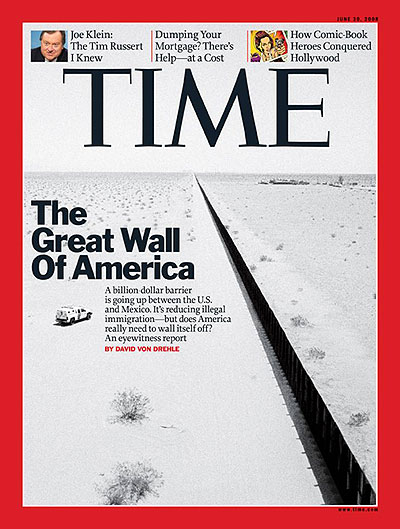Making It Hardest For The Most Resilient Among Us
 Thursday, March 3, 2016 at 12:08PM
Thursday, March 3, 2016 at 12:08PM  HUMANITY HAS TRANSFORMED THE NATURE OF LIVING OVER THE PAST CENTURY, ROUGHLY DOUBLING LIFE EXPECTANCY AT BIRTH AND THUS SHIFTING THE MEAN AGE RADICALLY UPWARD. This changes the structure of all societies, albeit at uneven paces. Globally, the worker-to-elder-dependent ratio was 12:1 in 1950, dropping only to 9:1 in the year 2000. But with globalization's profound expansion over the last 25 years, we're looking at a ratio of just 4:1 in 2050 (per the UN). That's an amazing burden shift that will be accommodated by people working later in life, technology and productivity advances, and — most crucially — the proper harnessing of youth as future labor. The big problem? Most of those youth are located in the emerging South, where a 10:1 ratio will still exist in 2050, whereas the advanced West will be looking at an untenable 2:1 ratio.
HUMANITY HAS TRANSFORMED THE NATURE OF LIVING OVER THE PAST CENTURY, ROUGHLY DOUBLING LIFE EXPECTANCY AT BIRTH AND THUS SHIFTING THE MEAN AGE RADICALLY UPWARD. This changes the structure of all societies, albeit at uneven paces. Globally, the worker-to-elder-dependent ratio was 12:1 in 1950, dropping only to 9:1 in the year 2000. But with globalization's profound expansion over the last 25 years, we're looking at a ratio of just 4:1 in 2050 (per the UN). That's an amazing burden shift that will be accommodated by people working later in life, technology and productivity advances, and — most crucially — the proper harnessing of youth as future labor. The big problem? Most of those youth are located in the emerging South, where a 10:1 ratio will still exist in 2050, whereas the advanced West will be looking at an untenable 2:1 ratio.This is why I have advocated, throughout my career, for the West's open borders and active recruitment of immigrants from younger parts of the world. It is the only realistic solution — necessary even as it's insufficient (people will have to work longer and productivity will need to advance). Right now, Westerners seems to be dazzled by the imagery of robots running all and there being no work to be done, but this is a queer illusion that encourages inward-looking perspectives on the future, the classic example being Japan. The zero-sum mindset is also unrealistically greedy — as in, we have ours, so tough on you.
And yes, this generational divide, so well encapsulated in a North-South divide, dovetails quite negatively with the unequal social and environmental burdens generated by climate change, which likewise pits the "old" poles against" young" Middle Earth.
Simply put, we are eating our seed corn.
On this disturbing global trend comes a great editorial in the Economist. Some highlights, with commentary:
Roughly a quarter of the world’s people—some 1.8 billion—have turned 15 but not yet reached 30. In many ways, they are the luckiest group of young adults ever to have existed. They are richer than any previous generation, and live in a world without smallpox or Mao Zedong. They are the best-educated generation ever . . . they are also more intelligent than their elders. If they are female or gay, they enjoy greater freedom in more countries than their predecessors would have thought possible. And they can look forward to improvements in technology that will, say, enable many of them to live well past 100.
Another theme of my work over the years: when America stood up and took on the responsibility of running the world after WWII, it didn't simply replicate the global orders imposed sequentially by Europe's colonial powers over the centuries. Instead, it fundamentally reshaped it to enable global economic integration on an unprecedented scale — and based on our own model of states uniting. This is the primary reason why global standards of living have skyrocketed over the past half century.
But this creates class and generational consciousness on a global scale:
Just as, for the first time in history, the world’s youngsters form a common culture, so they also share the same youthful grievances. Around the world, young people gripe that it is too hard to find a job and a place to live, and that the path to adulthood has grown longer and more complicated.
The primary culprit? "Policies favouring the old over the young."
Last hired, first fired is the most obvious one:
In most regions they are at least twice as likely as their elders to be unemployed. The early years of any career are the worst time to be idle, because these are when the work habits of a lifetime become ingrained. Those unemployed in their 20s typically still feel the “scarring” effects of lower income, as well as unhappiness, in their 50s.
This is very bad news for a planet experiencing rapid demographic aging, the scariest and most self-destructive expression being the tendency of the old to want to "keep out" the foreign or "scary" young. This is a great deal of the emotion behind America's current passion for such slogans as "make our country great again!" It is simply nostalgia for the way things were.
But it denies us sufficient access to the most important resource on the planet — namely, youthful ambition and drive and creativity:
Young people are often footloose. With the whole world to explore and nothing to tie them down, they move around more often than their elders. This makes them more productive, especially if they migrate from a poor country to a rich one. By one estimate, global GDP would double if people could move about freely. That is politically impossible—indeed, the mood in rich countries is turning against immigration. But it is striking that so many governments discourage not only cross-border migration but also the domestic sort … A UN study found that 80% of countries had policies to reduce rural-urban migration, although much of human progress has come from people putting down their hoes and finding better jobs in the big smoke.
The aging of the North is making it brittle, self-centered, and selfish in spirit, and this is being increasingly reflected in government policies, in large part because, on average, 3 out of 5 elders regularly vote while only 1 out of 5 youth do.
The old have always subsidised their juniors. Within families, they still do. But many governments favour the old: an ever greater share of public spending goes on pensions and health care for them. This is partly the natural result of societies ageing, but it is also because the elderly ensure that policies work in their favour. By one calculation, the net flow of resources (public plus private) is now from young to old in at least five countries, including Germany and Hungary. This is unprecedented and unjust—the old are much richer.
This is where the newspaper nails the long-term danger:
That is a cruel waste of talent . . . Rich, ageing societies will find that, unless the youth of today can get a foot on the career ladder, tomorrow’s pensioners will struggle. What is more, oppressing youngsters is dangerous. Countries with lots of jobless, disaffected young men tend to be more violent and unstable . . .
The great challenge of the North's rapid demographic aging is resisting the general political crabbiness that comes with growing old, which eventually turns us all into cranky, get-the-hell-off-my-lawn types.
I don't know about you, but I don't dream of a future of gated communities populated mostly by the elderly who receive "personal care" from robots. That sounds more like the North turning itself into a giant nursing home.
Social resilience is a renewable resource, but it gets renewed generation by generation. We are not promoting that dynamic today in the West/North, and it will come back to haunt us.












